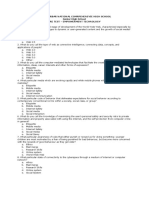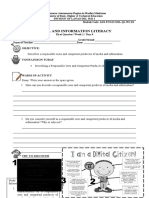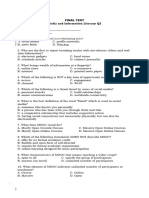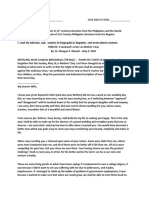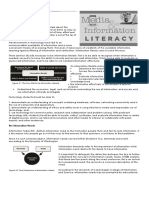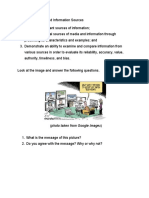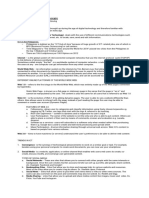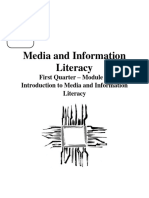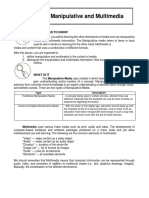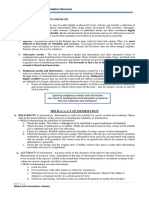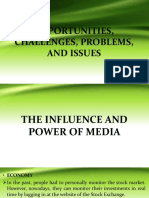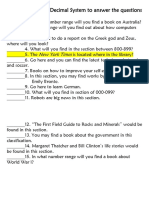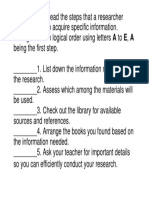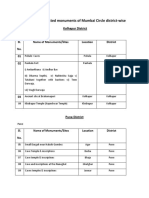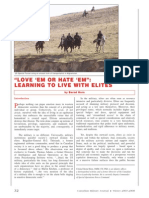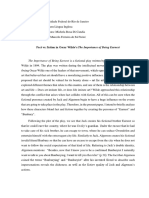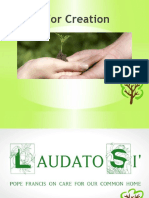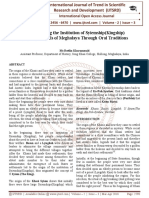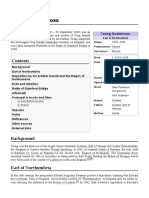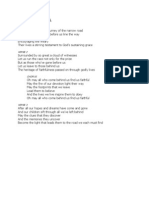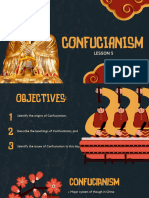OPPORTUNITIES, CHALLENGES, PROBLEMS, AND ISSUES
Influence and Power of Media
Anything that goes viral in the Internet becomes an instant trending and popular topic. These
are concrete examples of how media can influence the economy, education, society, and politics.
Economy
In the past, people had to personally monitor stock market. However, nowadays, they can
monitor their investments in real time by logging in at the website of the Stock Exchange.
With various social media like Twitter and Facebook, a businessman can easily receive
notifications about local and global news which could affect his investment.
Business process outsourcing (BPO)- are companies responsible for providing technical support
and customer service agents, medical transcriptionists, marketing and real
estate agents, and many others.
Education
There are different ways in how teachers can use modern technology in presenting their
lessons to students.
Gone are the days when they do not have any other choice but to manually make their visual
aids in order to impart knowledge to their pupils.
1. Pocket chart
2. Educational toys
3. Educational compact discs (CDs)
4. Digital versatile discs (DVDs)
5. Internet
Society
Mass media, may it be in print, broadcast, or the Internet, have become very powerful tools in
influencing people’s perception on certain things. Due to TV commercials and print
advertisements, many people tend to base their perception on it.
With media being a very powerful means to send and receive messages, the people must be
more careful in choosing the kind of media to patronize, so their values and standards will not
be compromised.
Politics
The power of media and information is strong and wide enough to reach all people from
different fields. As a matter of fact, citizens who have internet connection can easily have
access to the latest local news wherever they are.
Local officials even use media in informing their constituents about the upcoming projects
which would be beneficial for their community.
Threats and Risks from the Abuse and Misuse of Media and Information
As a democratic country, all citizens are entitled to freedom of expression and the state ought
to protect that constitutional right. Due to this, we are free to express our ideas and beliefs
through writing, speaking, or demonstration without any fear of being sued.
Bill of Rights Article III of the 1987 Philippine Constitution Section 4 specifically states that, “No
law shall be passed abridging the freedom of speech, of expression, or of the press, or of the
right of the people peaceably to assemble and petition the government for redress of
grievances.”
Media and Information Literacy (Enhancing Education through Effective Communication)
Author: Christine Marie Magpile
�Libel
A person commits libel if he publishes in public, either in print or online, anything that is
deemed malicious of a “vice or defect, real or imaginary or any act, omission, condition,
status, or circumstance tending to cause the dishonor, discredit, or contempt of a natural or
juridical person, or to blacken the memory of one who is dead.”
Libel is a violation of Article 355 of the Revised Penal Code. As stated in this article, libel can be
committed in writing, printing, and under similar means.
Slander
According to Article 358 of the Revised Penal Code, slander refers to a malicious act of
spreading untrue statements about someone or something else, in a way that is intended to
cause harm.
Calling someone names or saying derogatory remarks about a person is considered
slanderous.
1. Misquotation- refers to someone for having said something, but without using the exact words
spoken
- also mean quoting someone for something he did not say
A person who commits misquotation can either be charged with libel under Article 355
of the Revised Penal Code, or slander under Article 358 of the Revised Penal Code
2. Mislabeling- whether it is done deliberately or unintentionally, mislabeling a person or
organization can be considered misleading, hurtful, and damaging.
For example, if an unknown new school has been described as a “fly-by-night” in a
newspaper, it can be deemed as improper labeling. Fly-by-night is an idiomatic expression which
means unreliable or untrustworthy. Thus, labeling the school as a fly-by-night could put the
school’s credibility at stake.
Anti-Obscenity Law
According to Article 201 of the Prevised Penal Code, a material would be a violation to
anti-obscenity law if it includes immoral doctrines, obscene publication or exhibitions,
and indecent shows.
Also, materials have content glorifying criminals or condoning their crimes; promotes
violence, lust, or pornography; offends a race or religion; promotes the use of
prohibited drugs; and encourages acts contrary to law, public order, morals, good
customs established policies, lawful orders, decrees, and edicts also violate the anti-
obscenity law.
Sedition
Pertains to subversive acts, such as rebellion and insurrection, which incite people to go
against the government and resist its lawful authority and jurisdiction.
According to Article 138 of the revised Penal Code, any person who is found to be inciting a
rebellion shall be penalized because this will endanger the security, safety, and stability of the
State.
Contempt of Court
Refers to the disobedience to the court where a person exhibited acts opposing the court’s
authority, justice, and dignity, as explained in Section 1, Rule 71 of the Rules of Court.
Piracy
Is the unauthorized distribution and reproduction of a copyrighted material.
Media and Information Literacy (Enhancing Education through Effective Communication)
Author: Christine Marie Magpile
� It is also a violation of the Anti-Camcording Act of 2010 or Republic Act 10888
Media and Information Literacy (Enhancing Education through Effective Communication)
Author: Christine Marie Magpile






